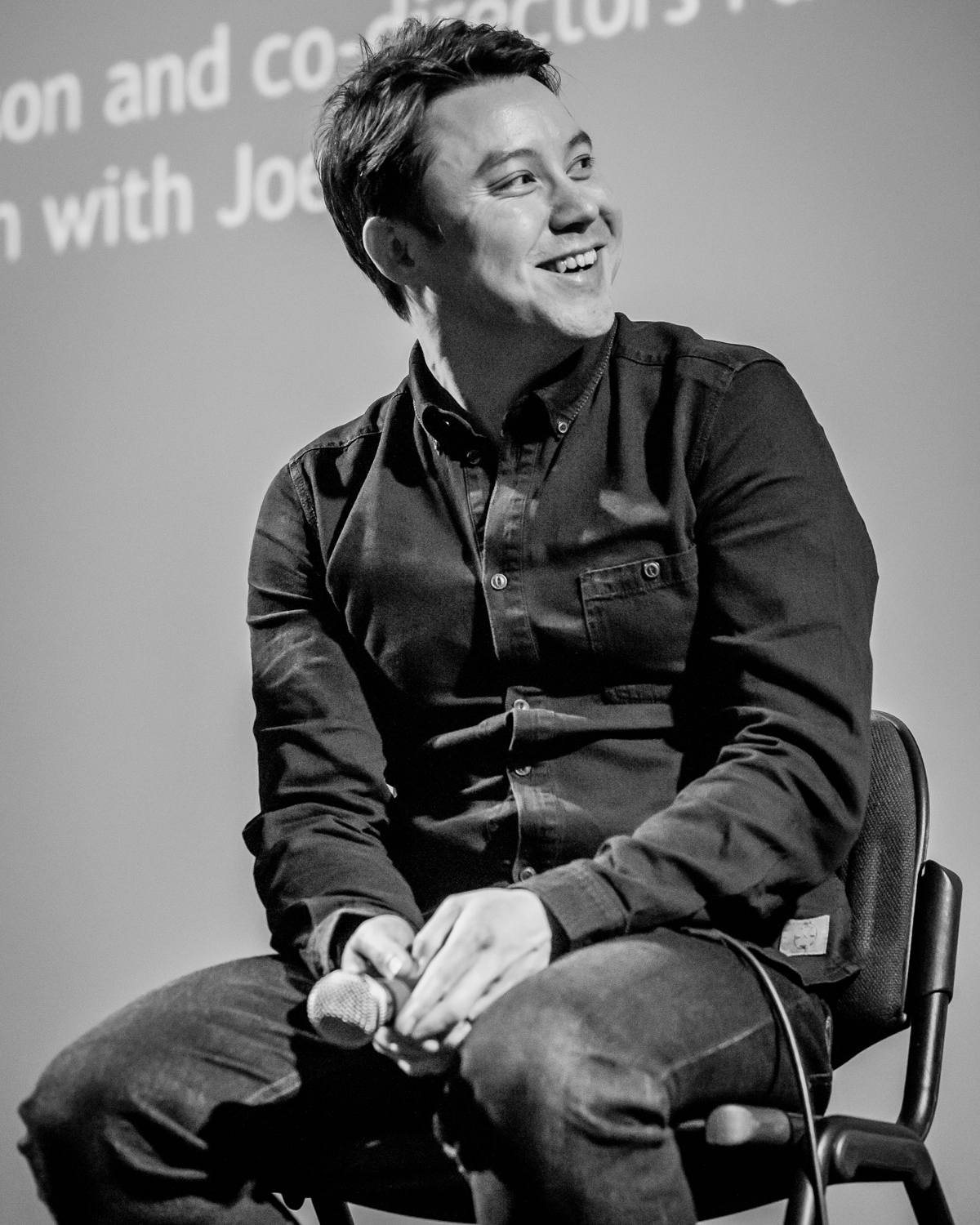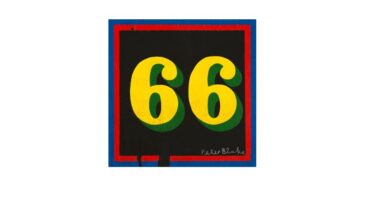They started out as a rock ‘n’ roll covers band and ended up defining their own genre. Pete Cary catches up with The Jam’s former drummer Rick Buckler to talk about his newly-released autobiography, That’s Entertainment: My Life in the Jam and what exactly made three young lads from Woking so special.
As a three-piece band from a sleepy town in Surrey, The Jam were perhaps always against the grain. Unlike contemporaries such as the 101ers (or The Clash, as they became), Rick Buckler, Bruce Foxton and Paul Weller were not immediately immersed into the London punk scene, and yet their entry into the peripheral of the ‘new wave’ of modern music that emerged in the late 1970s helped shape what became a phenomenon of British culture.
With a frontman like Weller, Buckler and Foxton maintained a legendary status that didn’t reach the heights of frenzy that their singer endured, and it shows: the drummer approaches memories and questions about his time in one of the world’s biggest bands with a quiet modesty. He’s neither insistent, nor cold; he considers each question for a second and then answers in a direct, yet engaged manner, and patiently steps his way through topics he’s addressed countless times before. Talking about the band though, he’s more emphatic: like fans of The Jam, there’s clearly something that resonates through the thirty-year split and still conjures a pang of regret that it couldn’t have lasted longer.
Did you enjoy writing the book?
I did really. It wasn’t too intense to start with because I’d started jotting things down over a period and it was only really in the last year that it took on more shape. It was good to go over some of the old memories.
Did you find it brought a lot of stuff back that you’d actually forgotten about when you came to do it?
Yes – well, you don’t dwell on these things too much do you? One memory just led to another and then you think, ‘Oh yeah, I remember so-and-so’, so it just led on. There’re still bits and pieces that I intend to reflect on now after writing it, where I think ‘oh, I should have put this or that in’, so it was a bit like an archaeological dig in some ways, I suppose.
Do you have any particular examples of that – of things that you think, ‘oh, I should have spoken about that a bit more!’?
Well… not really. I stopped making notes. At some point you have to say no, enough’s enough. It’s plus of 80,000 words I think. Maybe I’ll go over it again and add it in. Maybe there’ll be another edition of some sort.
Did you always envisage that you’d write your story, or was there a particular series of events that led to you doing it?
Yeah, I thought I would get round to it, which is why I was making the notes and things – but I didn’t really have a schedule or a timeframe for when it was going to happen, it just seemed that everything just came together last year. With promoting somebody else’s book as a matter-of-fact, which was Ian Snowball, and then foolishly mentioning to him, ‘oh I’ve started a book by the way’. And he helped me pull it together.
People tend to think of bands like The Jam and The Clash as being hard-edged London acts, and yet you guys were from a fairly suburban background. Do you think that’s important to the music and where it came from, and did it help to shape what you were about at the time?
It’s difficult to judge that. We went to Sheerwater Secondary School, and Sheerwater was a GLC overspill. I know from my experience, coming from what was then sleepy Woking, if you’re thinking about the early 1960s, it’s almost a cosy sort of background. Then going to a secondary school in the 70s where kids were a lot more streetwise than you would have found normally in Woking was a bit of an education; I remember that. There were all these kids and families moving out of London and into this GLC overspill area, which was the Sheerwater Estate, and obviously going to the school there was a sort of different education altogether, so that might have had something to do with it.
London was close enough to have a really exciting pub rock scene at that time. It was almost on our doorstep, though oddly enough we didn’t really discover it straight away. We used to go to the concerts at the Lyceum. Paul went up there one time on his own and saw the Pistols play there, and it wasn’t until he discovered that that we looked into what was actually going on in London at that time.
It’s striking to read about how you spent a lot of time in the early days playing covers, going to pubs and clubs. It seems unimaginable for a band now to start out as a cover band and then become one of the biggest bands in the world. Do you think the industry has changed so much that that’s no longer possible?
We had to play covers, or we never would have got the amount of gigs we did in our local area. The lack of proper venues meant the next best thing was the working men’s clubs and the CIUs and private parties. So if you wanted to work and you wanted to play gigs, you just simply played what people already knew. People would come to the clubs because the beer price was cheap, not because they happened to like the turn that was on. Although it was great for us because we cut our teeth and we learned a lot about playing on a regular basis and getting good at your instrument and all those other things. After a while it was very refreshing for us to move into that pub rock scene where we could play to people who actually wanted to listen to our music. And although the punk think was vastly different from what we were doing, in some ways it was very similar – like fast rock ‘n’ roll, really, energetic and youthful. So we took to that like a duck to water. It wasn’t difficult for us at that point.
You talk about the impact of the Pistols and bands like that on you. What was it about the punk movement that made it so influential, do you think?
I think that there was a simple message there that you could actually do this for yourself. That bands didn’t have to rely on the big record companies and the corporates to make things happen. Because it was very much the view that there was a huge gap, or so it seemed, between the bands who were playing the local pub, and the bands who were playing in Wembley and touring these huge arenas in the States. The them-and-us thing was enormous, and I think what that sort of ’77, punk or ‘new wave’, or whatever you want to call it, brought to the table was that people were fed up and had started to think ‘well, I’m gonna do this anyway!’
It’s interesting that of the bands you mention in the book who were trying to do just that have remained very recognisable, and some haven’t. What do you think it is about The Jam that has made them last as much as they have?
I don’t know to be honest – I haven’t got an answer to that. Our relationship with our fans is very strong, and that counted for a lot. And obviously Paul’s song writing had a great impact. He had a way of writing songs that was observational and somehow remained current, when you look at the subject matter. Even if you weren’t old enough to grow up with the band at the time, the fact that it still seems relevant I think is just fabulous.
Did you have a sense at the time that it was going to have the impact that it had?
No, obviously not. No, we just did what we wanted to do and got on with it really. There was no master plan for anything like that. It’s great that it’s turned out that way, but we were pretty much living for the moment.
How about a turning point with the band? When you really thought, ‘this is becoming serious now’?
I think when we first got signed we thought, ‘oh this is great, we’re here – this is us!’, but then you really find out that that’s not quite the truth. You have to stay there. People at Polydor would whisper in your ears things like, ‘if you haven’t made it by your third album, you never will’. So there was always this pressure and I think that’s part of why All Mod Cons was a real turning point. I think we realised that this was serious.
Unlike other bands you weren’t taking six months off in-between each album, you were pretty much recording, or on the road. Do you think that was maybe a contributing factor to you going your separate ways?
Yeah, I think it could have been. Our situation was never managed very strongly in that sense. We were very much dictated to by the record company. If the record company said, ‘this is when you release your singles, this is when we want to go out’, and that pretty much set the tone for when you were going touring and where you were going touring. And so for the majority of the time we were pretty much managed by the record company. Their agenda was plenty different from, say, a manager’s point of view. That had a great deal to do with it. Don’t get me wrong, we actually liked touring and we liked the work and we took it on: if somebody said there were more gigs to do, we’d simply do them. But in the end, we didn’t need to do that, we didn’t need to prove ourselves any more to the record companies or to the accountants of Polydor. We could have taken more control over our destiny, over our musical lives, and we didn’t. I think it just got too much. And the first person to sort of bend under the pressure I suppose was Paul because he turned round and said he wanted to ‘get off the treadmill’ – that’s how he expressed it to us, that he felt that it was getting too much for him. But it was a treadmill of our own making – it was something that we wanted to do, but it was how hard that treadmill was working was what we failed to take control of, I suppose.
Do you still feel like you could have done a bit more with The Jam, or as time’s gone on, do you feel glad you left it when you did?
I think we could have done a lot more, had we managed it a bit more sensibly. We could have done more albums, we could have taken more control. It’s alright saying that it’s great we finished when we did, when we were at the top of our game, but that’s easier to say with hindsight. From personal experience, I really would have preferred, and I know Bruce would say the same thing – I mean, we suggested to Paul that maybe we should take a year out; he could go into a solo project, or lie on a beach for a year, or do whatever he wanted, he could actually have done that at that moment in time, and it probably wouldn’t have done too much damage to us, but Paul felt that that wasn’t what he wanted to do. He felt that he wanted to get off this thing and I suppose take more control over his life. But the thing is he ended up getting back on the treadmill anyway, so it almost seemed like an odd excuse to us.
It’s interesting to hear about how you’ve been working as a manager with Sarah Jane and The Brompton Mix. Has that shown you the other side of the coin?
In a way – I mean, one thing that sticks out when you talk to young bands is that they’ve got no direction. They’re really stumbling around, wondering what to do next and who to contact and how to go about getting gigs and what’s important. Once you’ve been around the track two or three times you tend to know a lot more about what is probably needed. It’s great to give something back, to help acts out.
Tell me about the exhibition ‘The Young Idea’, that’s scheduled for Somerset House this summer.
Basically it’s one guy’s collection of his memorabilia. He had various visions about how it was going to be presented: at first he wanted to take it round the country as a touring thing, and then he wanted to make it into a film – he had some really grand ideas about it. Eventually he sort of calmed down a little bit and then decided that the thing to do was to put it into one place for a while and let people come to see it.
If you had a particular gig that sticks out in your mind of all that you’ve done, do you have one that you feel was especially fantastic?
We did one gig in Hastings where the audience literally got so overexcited that they ended up smashing all of the seats up in the cinema. And we’re just playing along, and obviously we’re going bananas on stage, but the audience are doing the same thing. They’re tearing out these old wooden cinema seats. That one sticks in my mind because of the outburst of violence that was going on there. It was sort of 1977, that sort of time, and some of the shows were very lively indeed.
That’s Entertainment: My Life in the Jam is published by Omnibus Press and is available now.
Pete Cary
@PeterCary1






